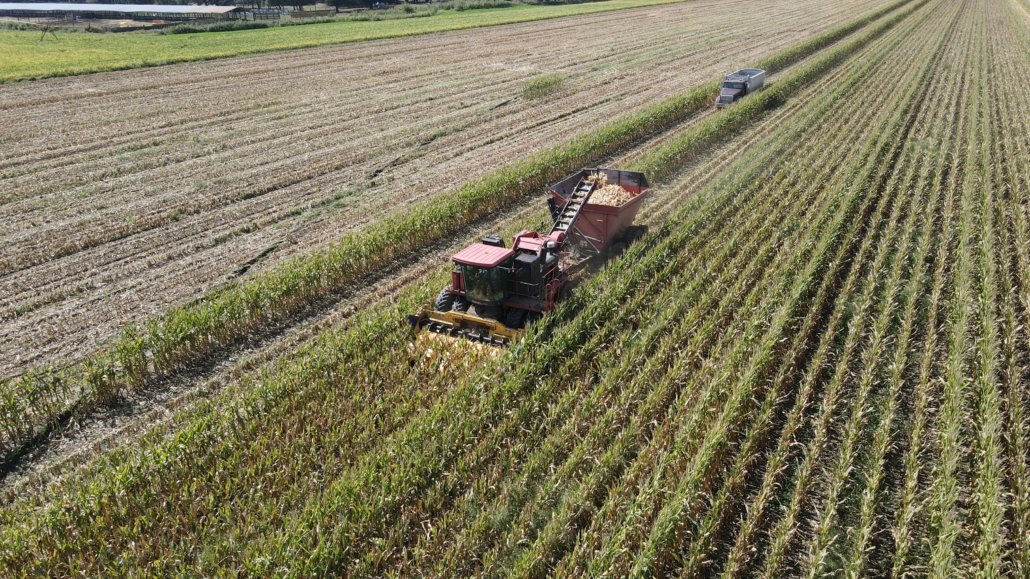Warning: foreach() argument must be of type array|object, bool given in /home/u780765189/domains/akshayseed.com/public_html/wp-content/themes/akshayseed/single.php on line 8
Organic vs. Hybrid Seeds: Which is Best for Farmers ?
When it comes to farming, the choice of seeds plays a crucial role in determining crop yield, quality, and sustainability. Farmers often face a critical decision: should they opt for organic seeds or hybrid seeds? Both types have their own advantages and challenges, making it essential for farmers to understand their differences before making a choice.
Organic vs. Hybrid Seeds: A Detailed Comparison
To help farmers decide, let’s break down the differences between organic and hybrid seeds in terms of growth potential, cost, environmental impact, and market demand.
1. Growth Potential & Yield
- Organic Seeds: Organic seeds are produced naturally without any genetic modifications or artificial enhancements. They are well-adapted to local environments and can resist pests and diseases naturally. However, their yield might be slightly lower compared to hybrid seeds, especially in areas with extreme weather conditions.
- Hybrid Seeds: Hybrid seeds are scientifically developed by cross-breeding two different plant varieties to enhance their traits. These seeds are engineered for higher yield, faster growth, and better resistance to diseases. This makes them a preferred choice for commercial farmers looking to maximize output per acre.
- Verdict: If you prioritize natural growth and sustainability, organic seeds are ideal. But if you need higher productivity, hybrid seeds are the better option.
2. Cost & Investment
- Organic Seeds: Organic seeds are often more affordable because they can be saved and replanted from previous harvests. However, they may require additional investments in natural fertilizers and pest control methods to maintain soil fertility and protect crops.
- Hybrid Seeds: Hybrid seeds are usually more expensive because they are developed using specialized breeding techniques. Additionally, they cannot be replanted for the next season, meaning farmers must buy new seeds every year.
- Verdict: Organic seeds are cost-effective for long-term use, while hybrid seeds require higher investment but offer greater returns in terms of yield.
3. Environmental Impact
- Organic Seeds: Since organic seeds are grown without chemical fertilizers and pesticides, they contribute to a healthier ecosystem. They help maintain soil fertility, reduce water pollution, and promote biodiversity.
- Hybrid Seeds: Hybrid seeds often require chemical fertilizers and pesticides to achieve their full potential. Over time, this can lead to soil depletion and environmental degradation if not managed properly.
- Verdict: Organic seeds are better for the environment, making them an excellent choice for sustainable farming practices.
4. Market Demand & Consumer Preferences
- Organic Seeds: The demand for organic produce is growing rapidly, especially in urban areas where consumers prefer chemical-free food. Using organic seeds can give farmers access to premium markets where organic products sell at higher prices.
- Hybrid Seeds: Hybrid crops are widely used for commercial farming and large-scale production. They meet the high demand for food supply, making them ideal for farmers who focus on large-scale distribution rather than niche organic markets.
- Verdict: If your target is health-conscious consumers, organic seeds offer better profitability. If you aim for mass production, hybrid seeds are the way to go.
How Akshay Seed Helps Farmers Choose the Right Seeds
At Akshay Seed, we understand that every farm has unique requirements. Whether you prefer organic seeds in India or need a reliable hybrid seeds supplier in India, we provide high-quality seeds that cater to different farming needs.
Why Choose Akshay Seed?
Wide range of organic and hybrid seeds High-yield, disease-resistant seed varieties Expert guidance on seed selection and farming techniques Trusted hybrid seeds supplier in India We help farmers make informed decisions by offering the best seeds for optimal yield, sustainability, and profitability.
Conclusion
Both organic and hybrid seeds have their advantages, and the best choice depends on your farming goals. Organic seeds are ideal for sustainability and niche markets, while hybrid seeds are excellent for high-yield commercial farming. By partnering with Akshay Seed, farmers can access the best of both worlds and achieve long-term success.
Contact Akshay Seed Today!


